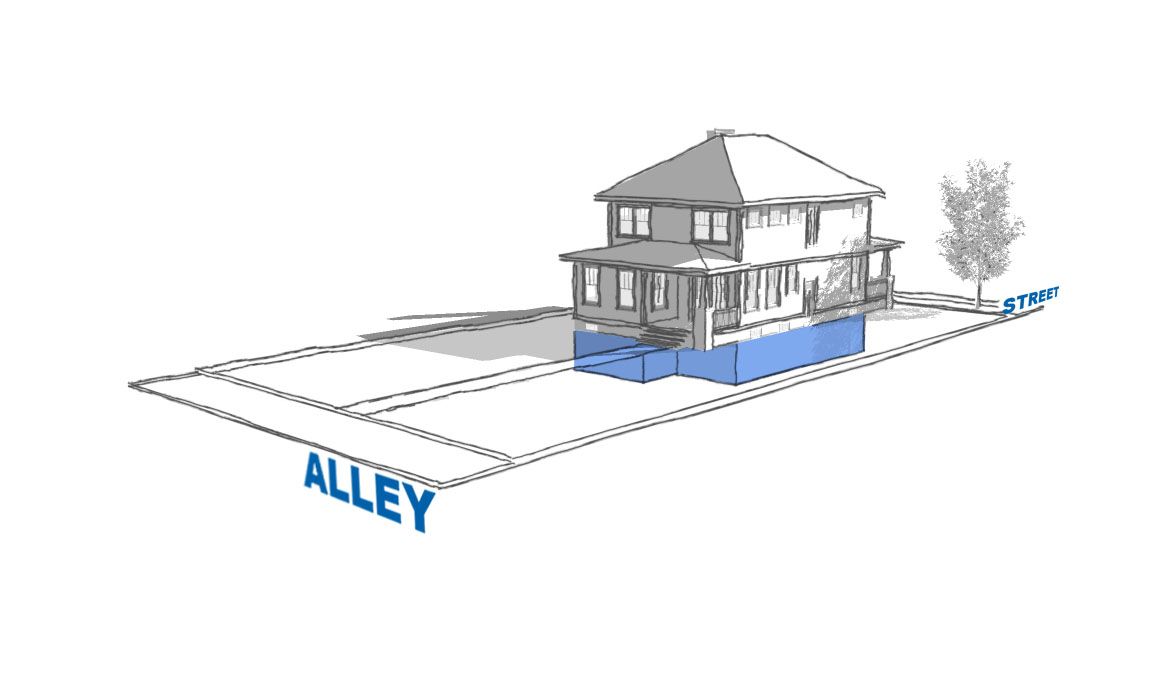Polis administration touts local cities’ ‘compliance’ with housing laws

The Polis administration is taking a victory lap this week on local government compliance with housing laws passed by the General Assembly in the past two years, although the highest level among the metrics is only 60% compliant.
In another metric, there are more localities that are non-compliant than those that are. The majority are in the “progress” phase.
The Department of Local Affairs on Tuesday released a “compliance dashboard” that shows to what extent municipalities are complying with laws on transit-oriented communities, accessory dwelling units or so-called “granny flats” and housing needs assessments.
A statement Tuesday noted an executive order that Gov. Jared Polis signed in May on “strategic growth” through compliance with state laws. That order required local governments to comply or risk losing out on housing grants worth $277 million.
That order drew a lawsuit filed by six Front Range communities. The legal challenge from Arvada, Aurora, Glendale, Greenwood Village, Lafayette, and Westminster is still ongoing.
The lawsuit is tied to concerns that the laws violate the state constitution’s provisions on home rule, a century-old authority that gives municipalities some control over local matters, particularly in land use and zoning.
The laws adopted by the General Assembly put the state, rather than local jurisdictions, in charge of some of the zoning and land use policies.
Maria De Cambra, the executive director of the Department of Local Affairs (DOLA), told Colorado Politics that the state is seeing a “high” level of jurisdictions that are compliant with the governor’s executive order.
House Bill 24-1313 required certain Front Range local governments, tied to metropolitan planning organizations and with at least 4,000 residents, to plan and implement housing density goals. A grant program within DOLA would provide technical assistance in developing those plans.
DOLA reported that as of Oct. 3, 19 jurisdictions, or 60%, are compliant and another three are in progress of complying. Ten jurisdictions are not complying, or about 31%.
De Cambra said that seven jurisdictions are actually a year ahead of schedule on putting their plans together and are ready to receive funding.
Those jurisdictions are Denver, Longmont, Englewood, Lakewood, Littleton, Wheatridge, and Colorado Springs, she said.
House Bill 24-1152 requires local governments to change zoning laws to allow for accessory dwelling units, also known as “granny flats” or casitas.
Just six jurisdictions, or 9%, are in compliant, according to the state agency, with 49, or 73% working to comply. Another 12 jurisdictions, or 18%, are not compliant.
But another five, not originally included in the legislation, are also wanting a share of that funding and are opting-in to the program, De Cambra said.
The dashboard shows that Westminster, one of the six cities in the lawsuit, is working to comply on the ADU requirements. Lafayette is listed as fully compliant. The other four cities in the lawsuit are not compliant on the ADU or transit-oriented community law. As to the housing needs assessment law, the deadline is not until Dec. 31, 2026.
The third bill is Senate Bill 24-174, which requires local governments to come up with housing needs assessments.
On that measure, 24% or 39 jurisdictions are compliant, with 76% in progress.
Another 28 have opted into the program.
Four other laws do not have reporting requirements. DOLA said the state assumes compliance unless there is “verifiable evidence to the contrary.”
These cover parking minimums, occupancy limits, regional building codes and building stairs modernization.
Communities outside the Front Range, not originally on the list, are among those vying for the housing grants. The legislation, however, included opt-in provisions to allow for those communities to sign up.
The communities opting-in include Larimer County, Idaho Springs and Glenwood Springs.
“It’s clear that communities across the state are removing obstacles and regulations that prevent housing from being built and expanding housing options,” Polis said. “I applaud these local leaders and look forward to this continued work to make housing more affordable in our state. I’m particularly excited that a number of cities have gone above and beyond the state law.”
So, did the threat of withholding millions of dollars in housing grants prompt compliance?
De Cambra wouldn’t say.
But Kevin Bommer, who leads the Colorado Municipal League, is skeptical of the celebratory tone from the state.
He told Colorado Politics DOLA was probably looking at everything it already had in the pipeline — in other words, local governments that were already working on these issues before the laws went into effect.
He said that at the time the laws were passed, local governments and the governor were not that far apart on the vision of improving the state’s housing supply.
“We just completely disagreed that you get to tell cities and towns that the state gets to tell them how to do it,” Bommer said.
As to those municipalities that opted in, “if I were a municipality and I saw an opportunity to get some funding for something I was already planning on doing that was already in the works, why not go for it?” he explained.
The governor’s executive order did not change home rule authority, Bommer noted, and at some point that’s going to be decided either by a different governor or in the courts.
“There is no statutory or regulatory basis for the executive order on which they’re doing a victory lap,” Bommer added.
Colorado Springs Mayor Yemi Mobolade said he is pleased that his city is in compliance with the executive order.
“This confirmation maintains our eligibility for state funding for the projects that help make housing more affordable and attainable for our residents. Our ongoing partnership with the state has been vital in driving these initiatives forward,” he said.
Mobolade, however, noted the progress on housing in Colorado Springs began years ago through the community’s own efforts and code changes.
“We’ll continue to collaborate with the state while leading with solutions that reflect our community’s values and our home rule authority,” he said.
Get OutThere
Signup today for free and be the first to get notified on new updates.






